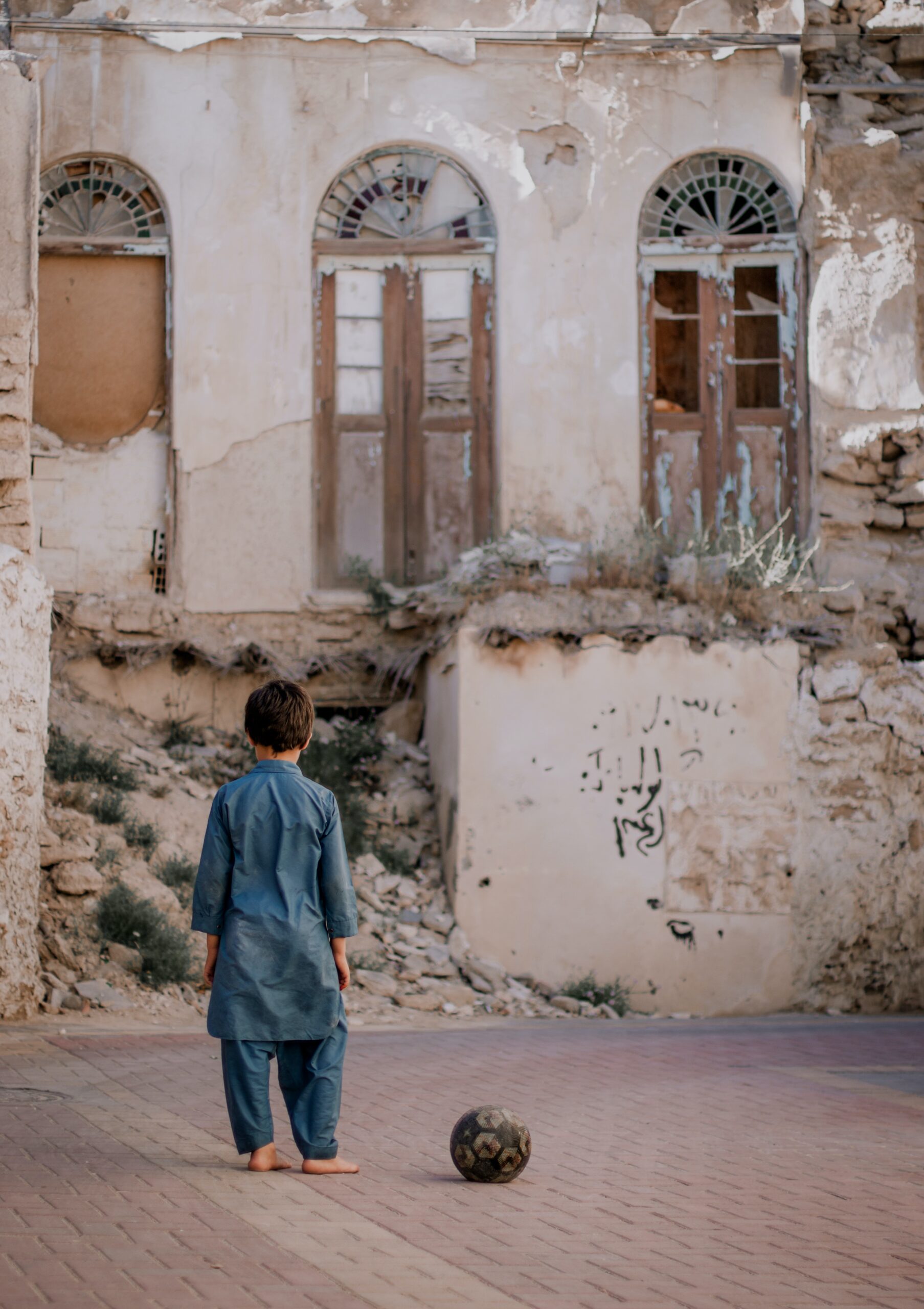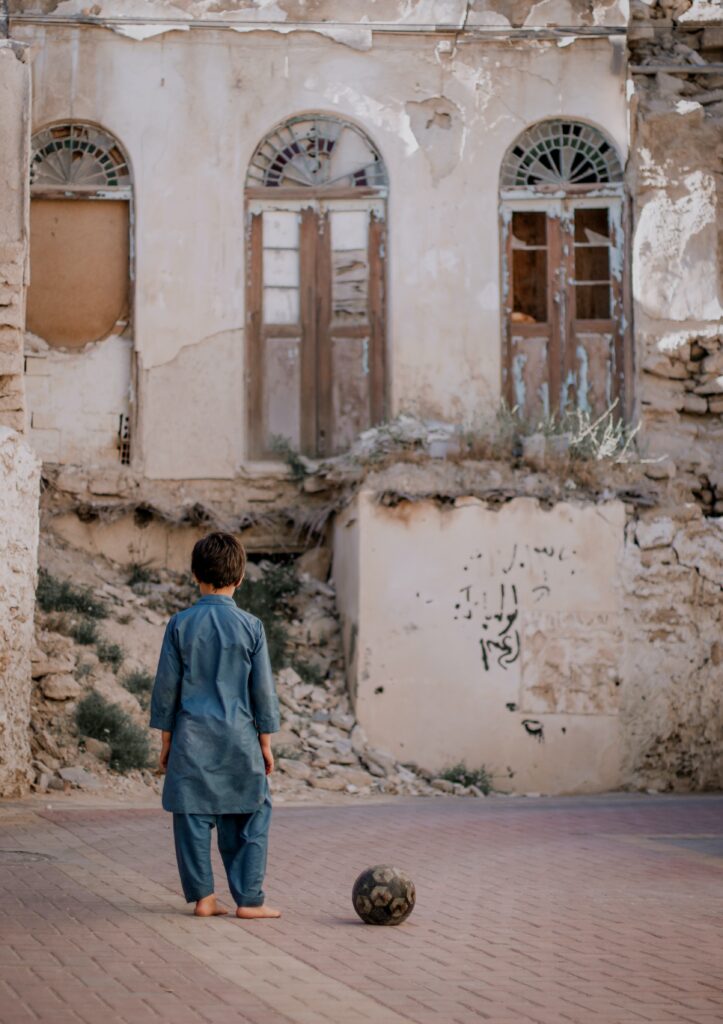
Taliban Takeover: 2 Years On
August 15, 2023, marked two years of the Taliban takeover. And with it, everyday attacks against “all manifestations of humanity, freedom and democracy”. In fact, since August 15, 2021, the United Nations has reported a “progressive exclusion of women and girls from the public sphere and their institutionalized, systematic oppression” in Afghanistan. And this has meant high and increasing rates of embodied and emotional insecurities for women, girls, and LGBTIQ+ people.
At the end of 2022, women were banned from attending the university, adding to the long list of public spaces they are prohibited from entering, such as parks, gyms, high schools, and many employments. Those restrictions have heavy impacts on the lives of women and girls in Afghanistan, especially in a war context with high levels of economic precarity.
Devasting consequences on feminized bodies
Every single policy that we have seen over the past year, has been directed at women, has been about restricting women, has been about pushing them out of the public eye, and this is the latest move. Yet, the world believed that it was Taliban 2.0.
Yalda Hakim, BBC World News
The Taliban takeover has led to disastrous consequences on human rights, in an already fragile context affected by more than 40 years of war. Suppression of minorities, torture, stone sentences, censorship, hunger, unemployment, closing of schools, gender-based violence and high rates of insecurity: although the Taliban are praising their own merits in reducing insecurities and cracking drug trafficking, the lived situation on the ground tells another story.
The two last years have been deeply affecting women and feminized bodies, with “multi-layered” violation of their human rights. The Taliban takeover has worsened all aspects of women and girls’ life possibilities as they have slowly instituted a regime of terror against their rights, with the adoption of laws and rules that expulse them from the public sphere. This has also the direct consequence of a general entrenchment in the private sphere and increase in violence against women.

Photo by Ali Karimi (Pexel)
There is a long list of prohibitions for women in Afghanistan since 2021. They are banned from appearing and working in most areas of the public sphere and “moral authority police” have been actively punishing those who do not conform. Faced with mandatory coverage, girls are banned from attending school and women from going the university, restricted to travel if note with a male chaperon. Since August 2021, 70% of university professors has fled Afghanistan, the share of women teacher was reduced, while female students had suffered restrictions on the subjects they could choose, such as journalism and engineering. They were gradually expelled from the university until the ban became complete in 2022. Last month, the Taliban have closed beauty salons, that employs approximately 60 000 women, most of the time, the sole breadwinners of their families. Additionally, Afghanistan “is the only country in which the United Nations (UN) cannot officially employ women”. Recent reports have shown the alarming consequences of the Taliban takeover on women, with increased suicide rates, child and forced marriages, harassment, torture, and arrest for political protest or refusing to marry Taliban.
Since violence against women is omnipresent, Farkhondeh Akbari and Jacqui True have been arguing for several changes in the international semantics about how we address the systematic gendered and ethnic oppression in Afghanistan, insisting on global responsibility. They propose to discuss it as gender and racial apartheid, where the Taliban rules establish a regime that goes far beyond the international law term of “gender prosecution”. According to the authors, it is the active “removal of any effective rights of women to education, freedom of movement, association and expression, socio-economic and political rights” coupled with racial discrimination against “vulnerable ethnic groups, such as the Hazaras” (p. 2). Adopting gender and racial apartheid as a normative tool against the system of governance of the Taliban aims therefore at pushing the obligations of the international community. However, the response has been slow and insufficient, with a marked absence of a global responsibility about the impacts of a 20-year war intervention in the country by the NATO-led coalition.
The role of international community
While women, girls and LGBTIQ+ populations are suffering the consequences of the gender apartheid, Taliban refuse to bend on international pressure and “global attention has largely faded”. As Heather Barr from Human Rights Watch puts it, “from their perspective, it’s going pretty well”:
They are posing in photographs with smiling diplomats, they are getting on private jets to fly off to important high-level meetings where people roll out red carpets for them; they are being permitted to take control of embassies in a growing number of countries.
Many questions have arisen about the role of the international community and regional politics in the domestic politics of Afghanistan and their subsequent silence and withdrawal after the Taliban takeover. If the NATO-led invasion of 2001 was justified in the name of the “liberation” of Afghan women, activists and NGOs have instead constantly denounced the use of women’s rights rhetoric to perpetuate a war that has contributed to the growing insecurities in the country. While simultaneously offering billions in aid that are channeled through the Taliban, therefore reinforcing their repressive regime, it seems that silence and abandonment have characterized the international position towards Afghanistan following the takeover.
In the face of the growing assault on women’s and girls’ rights, the failure of the security sector reform and the peacebuilding/aid apparatus, the multiplication of armed groups, the presence of ISIS, and the economic crisis, women’s organizations such as the Revolutionary Association of the Women of Afghanistan (RAWA) have continuously denounced imperialism, undemocratic governance, fundamentalism, and the global and local patriarchies.
Sadly, the takeover was predictable. If several countries, including the US, have tried to say that the Taliban has changed, the scenario of the late 90s is repeating itself. The Taliban are using the same tactic of claiming a temporary ban on women’s freedoms and rights, but it is just a repetition of their modus operandi based on fundamentalism. As such, despite the Taliban claim of the “temporal” character of the measures, “the facts on the ground have demonstrated an accelerated, systematic, and all-engulfing system of segregation, marginalization and persecution”.
But as we have claimed elsewhere, the disastrous consequences of more than four decades of civil war and foreign intervention have contributed to institutionalize misogyny in Afghanistan. The takeover was predictable also because the NATO-led coalition following 9/11 and the subsequent US-war in the country has cost the life of more than 111 000 Afghan civilian since 2009 alone. It has sparked insecurities, drug trafficking, corruption and weaken the social fabric. US engagement in the country also legitimized forms of governance favoring the power of guns, foreign money, and the mujahedeen involved in mass atrocities in the 1990s. In previous article, I have argued for a careful analysis of how women’s rights groups and Afghan women activists have been warning for several years that this was a predictable outcome. Still, following the takeover, women continue to resist and fight for their freedom.
Women’s resistance to Taliban regime
RAWA has issued a statement this week, about how Afghan women are transforming their anger into weapons for the struggle against fundamentalism and fascism in the country.
In fact, Afghan women have actively been engaged against misogyny, fundamentalism and in the struggle for a democratic regime. Women and activists have organized resistance, consolidated underground schools, and provided shelters for women victims of gender-based violence. When they were banned from universities in 2022, they have publicly opposed the Taliban and received support from some male professors in their fight for a political voice in the country. In some universities, young men have left saying they will not come back until their sisters are authorized back in. Everywhere in the country, women and girls have been defying the Taliban regime, building secrete schools and reaffirming that their emancipation is not relying on foreign war occupation.
Several things can be done to support Afghan women in their fight in the war against their embodied existence. We first need to remember that it is a global problem and that we must hold accountable our governments both for their war implication over the last two decades, but also, in their responses against the Taliban regime. There are also ways of collecting money for the support of underground schools and take a stance that favor what Afghan women’s have been asking for several decades now. Finally, following and supporting the work of Afghan women activists and building translocal alliances and solidarities is crucial.
On September 15, 2023, the Swedish South Asian Studies Network will be convening a conference and study group at Lund University to discuss about Afghanistan’s possible futures, one in which women, girls and LGBTIQ+ people’s right would be at the center. Samia Walid, an Afghan sociologist and women’s rights activist will be presenting the conference “Fighting Is the Cure for Pain”: Women’s Rights in Afghanistan Two Years after the Taliban Take-Over. The meeting therefore seeks to assess Afghanistan’s political and social situation two years after the Taliban takeover. It especially aims at centering the glance at the situation of women, girls, and non-binary people in the aftermath of this event by assessing what happened in terms of political repression and discussing about ways forward for different futures for the country.
More information here about the event.
